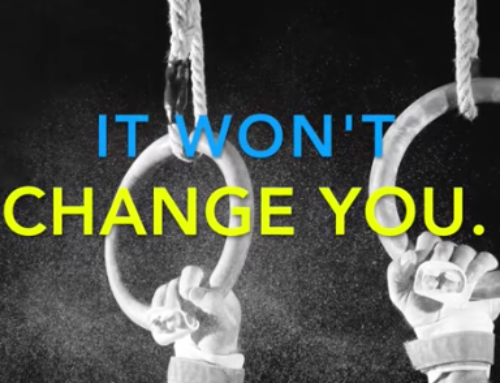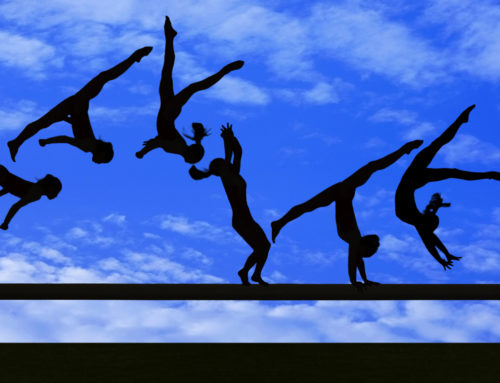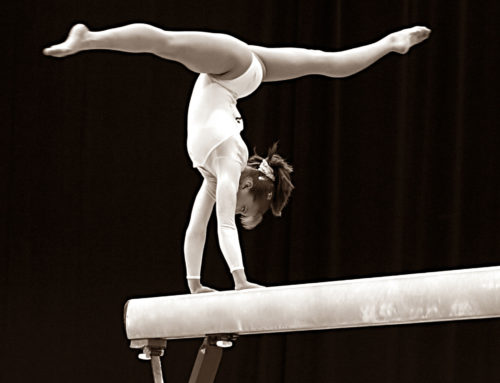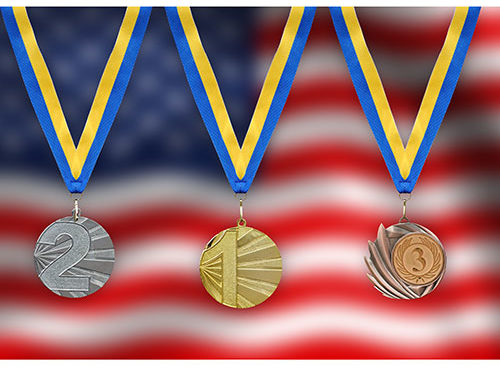by Patrick J. Cohn, Ph.D.
Many athletes that come to work with me hold back their physical ability because of the fear of failure. Fear of failure can motivate athletes to work hard and improve, but it also can become debilitating when the competition starts and it is time to perform your best when it counts. Typically, highly perfectionistic athletes have this syndrome.
There are many typical fears associated with fear of failure. Fear of embarrassment is a good example of one of the fears associated with the fear of failure. This is when you are afraid to make mistakes in front of others for fear of what they may be thinking about you or your performance. Fear of making mistakes is another example. This is when you perform very tentatively or defensively because you are afraid to make mistakes, miss a landing, or fall on a routine.
Fear of losing is another prevalent fear for many athletes. Many gymnasts cannot stand to lose and thus become over wrought with anxiety and tension, which prevents them from performing freely and to their potential. A good example of the fear of losing is on the last event of the competition you make a mental error such as trying too hard to stick your landing and it costs you a good finish in the competition.
The bottom line is, no matter what the fear, you probably are scared, tight, tentative, and afraid to make mistakes if you have fear of failure. Many perfectionistic athletes want to win so badly that they cannot perform up to their potential. Here are some ideas for dealing with these obstacles and getting beyond the fear of failure.
You cannot care about what others think. Social approval is the phenomenon at the root of the fear of embarrassment. If you get embarrassed on the floor, you probably are too concerned about what others think about you. You need to stop mind reading or projecting onto others what you assume they think about you. This only serves as distraction to the task of performing and causes you to think about the “what if’s”.
Focus on the ingredients of the process. Fear of losing or making mistakes often occurs because you focus too much on the end of the competition and what place you are in. Thus, your mind is racing ahead to the consequences of your actions. This is also a distraction. Worrying about results is one of the major mistakes I see athletes making. You have to define what is relevant to only gymnastics and keep your mind immersed into those task-relevant cues.
Let go of expectations. Expectations, good or bad, are the root of self-sabotage in gymnastics. For example, if you are performing better then expected you will probably protect your lead and thus perform tentatively and if you are performing below your expectations you will probably become frustrated and make some poor choices. The formula I teach is to have no expectations, high self-confidence, and manageable goals. Self-confidence comes from believing in your gymnastics ability and focusing on the reasons to succeed rather than the excuses to fail.
Note about the Author: Dr. Patrick J. Cohn is a master mental game coach who works with athletes of all levels – from juniors to professionals. Visit http://www.peaksports.com/to gain access to over 500 exclusive mental game articles, audio programs, and interviews with athletes and coaches to enhance your gymnastics potential.






Leave A Comment